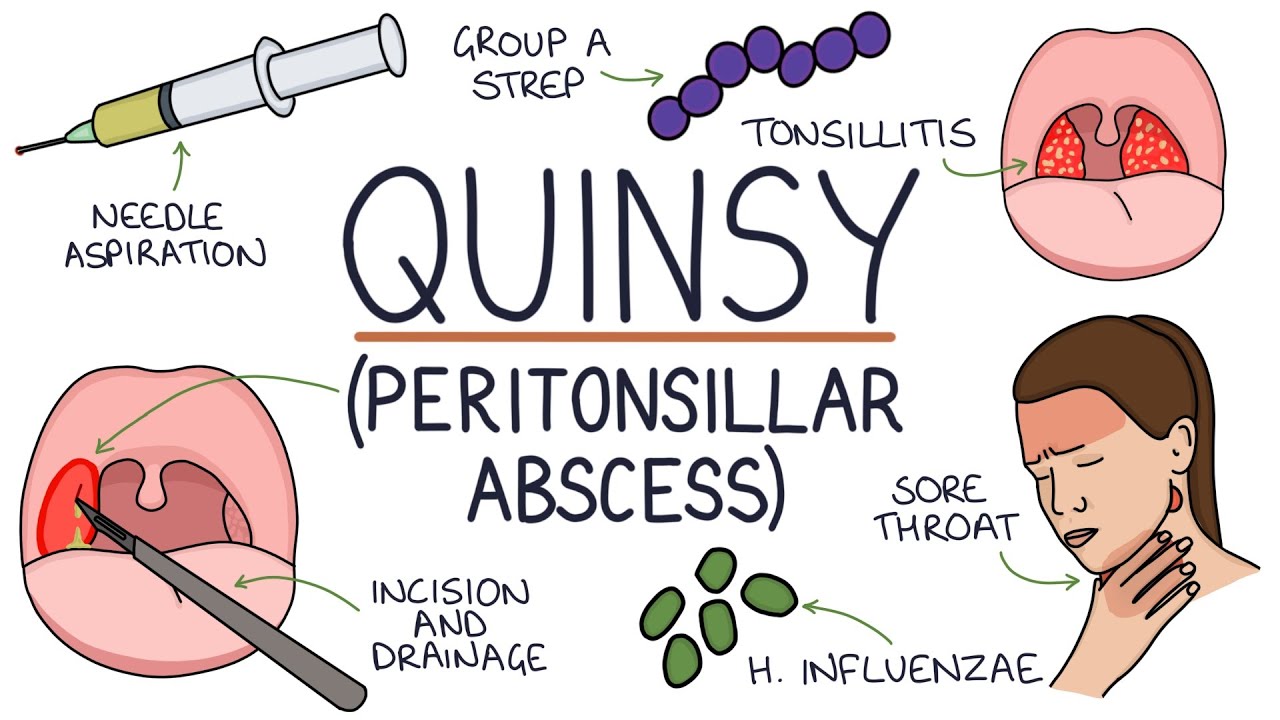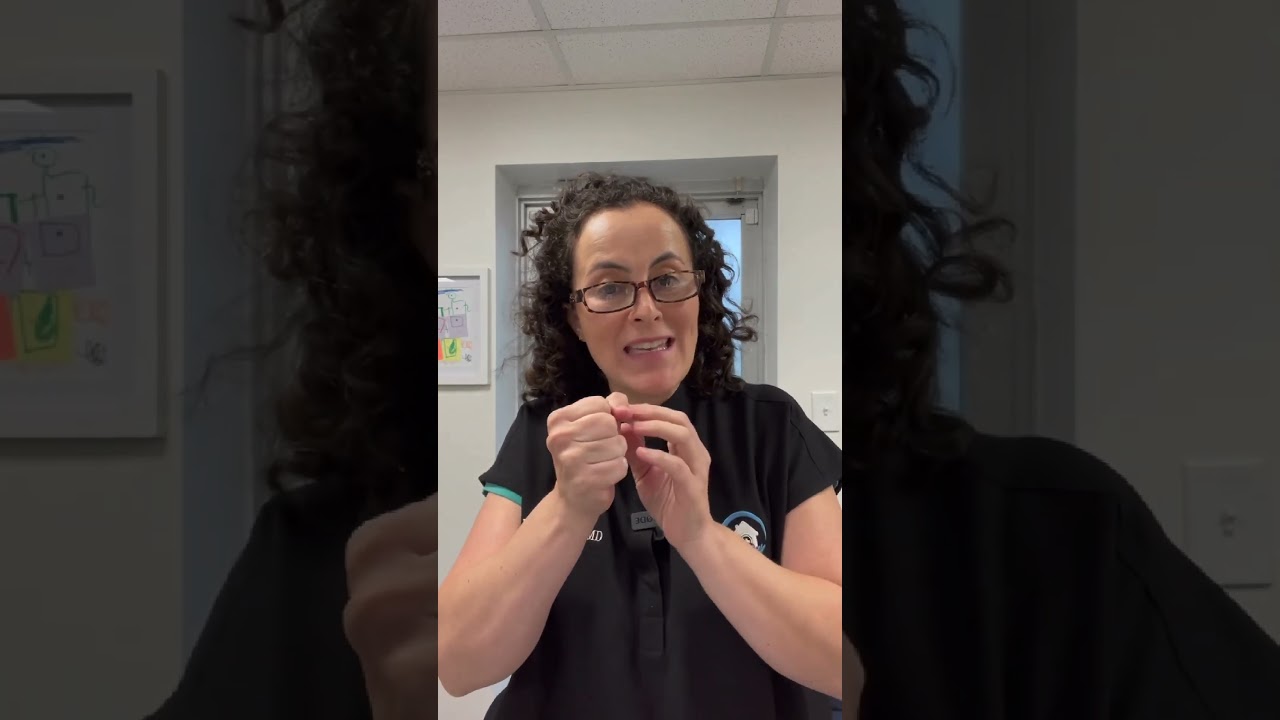Peritonsillar abscesses can incite a whirlwind of agony. This nasty condition manifests as a localized collection of pus near your tonsils, usually stemming from an untreated bacterial infection. You’ll most often see it develop as a complication from acute tonsillitis or pharyngitis. But don’t let fear hold you back; knowing what you’re dealing with is the first step toward conquering this pain.
When pain strikes in the throat, knowing the peritonsillar abscess symptoms can help you strategize for action. Are you experiencing severe sore throat, difficulty swallowing, or even swelling that can dramatically obscure visibility of the tonsils? If so, you could be facing this issue. Arm yourself with knowledge about peritonsillar abscess causes, and consider preventive steps as crucial weapons in your health arsenal.

The Dreadful Reality of Peritonsillar Abscess: What You Need to Know
Living with a peritonsillar abscess isn’t just a minor inconvenience; it’s a battle. The pain can be excruciating and can escalate quickly, gripping you at your core. A peritonsillar abscess generally strikes fast, often catching people off-guard. Knowledge is power here, so let’s break it down.
Understanding the root causes isn’t just for the docs in white coats. It’s crucial for you and your health too. Those pesky bacteria lurking in the back of your throat could be waiting for the right moment to pounce, especially if you’re neglecting your health or ignoring persistent symptoms. The quicker you recognize these indicators, the sooner you can seek help and get back on the path to health and ultimate fitness.
You know how you wouldn’t let a gym injury hold you back from crushing your goals, right? Treating your throat health with that same energy can prevent painful conditions like the peritonsillar abscess from derailing your progress toward being a shredded machine.

Top 5 Causes of Peritonsillar Abscess
More often than not, it’s Streptococcus pyogenes, the notorious bacterium behind strep throat, that leads to a peritonsillar abscess. If you don’t get strep throat treated effectively, you could find yourself in deep water.
Have you had repeated bouts of tonsillitis? You’re at a higher risk for developing a peritonsillar abscess. The repetitive infections can weaken your body’s defenses, making it easier for an abscess to pop up.
Ignoring your dental care? That can put you in the hot seat too. Bad oral hygiene can lead to infections that eventually spiral into a peritonsillar abscess. Bacteria can make their way to the tonsil area, especially with gum disease and cavities.
If your immune system isn’t living its best life—thanks to diabetes or chemotherapy—you can become a prime target for infections. It’s crucial to keep your defenses strong to dodge a peritonsillar abscess.
Did you know that smoking and heavy drinking can irritate your throat area? This irritation can set you up for an infection. Researchers have found a strong link between smoking and tonsil problems, including the dreaded peritonsillar abscess.

Recognizing Symptoms of Peritonsillar Abscess
Symptoms can rear their ugly heads pretty rapidly, and trust me, they’re hard to ignore. Here’s what you should be on the lookout for:
Discerning these symptoms quickly is your ticket to the right treatment and getting back in the game. Every moment matters when battling potential complications from a peritonsillar abscess.

Treatment Options for Peritonsillar Abscess
So, what do you do if you think you’re facing off against a peritonsillar abscess? The answer is clear: act fast! Here’s the rundown on effective treatment options:
Generally, antibiotics will be your first line of defense. Commonly prescribed meds like amoxicillin-clavulanate (Augmentin) or clindamycin (Cleocin) step up to combat that bacterial menace.
Sometimes, the abscess won’t back down easily, and that’s when incision and drainage comes into play. This procedure can relieve the pressure and drain off the pus, preventing complications and getting you on the fast track to recovery.
Medical professionals often recommend corticosteroids to tackle the inflammation and swelling, allowing you to bounce back faster and minimize discomfort.
If you find yourself facing recurrent abscesses, it might be time to consider a tonsillectomy—removing those pesky tonsils could be the ticket to lasting relief.
Never underestimate the power of good old-fashioned home remedies! Saltwater gargles, over-the-counter pain relievers like ibuprofen, and staying hydrated can all play a part.

Innovative Wrap-Up: Addressing Peritonsillar Abscess for Long-Term Health
A peritonsillar abscess isn’t just a hurdle; it highlights the importance of staying aware of your health and being proactive. Good oral hygiene, timely interventions for sore throats, and understanding your body are vital to warding off this nasty condition.
Keeping in tune with your body helps minimize risks and enhances your overall well-being. When armed with knowledge about peritonsillar abscess causes, symptoms, and treatments, you’re already taking great strides to kick pain to the curb.
That’s right! Treat your health like you would your workouts. It’s all about persistence and strength. Now go out there, take charge of your throat health, and remember that every rep counts—this journey to optimal health isn’t just about getting shredded; it’s about feeling unstoppable—just like our inspiration, Arnold Schwarzenegger. Let’s get to it!
Peritonsillar Abscess: An Interesting Look at Causes and Treatment
What It Is and Why It Hurts
A peritonsillar abscess is a serious condition where pus forms near the tonsils, causing immense pain and swelling. It usually arises from untreated tonsillitis, which can feel as debilitating as, say, the nagging symptoms of tinea pedis if you’re not careful. In addition to the obvious pain, patients often report difficulties swallowing or speaking, making it a real nuisance. If that sounds rough, just think about how a repeated strain can lead to complications that twist your day into a mike twist
Interestingly, these abscesses can also bring on some truly wild symptoms that might catch folks off guard. For example, fever, bad breath, and sometimes even a noticeable bulge on one side of the throat can develop. Kind of like sun spots on your skin, these abscesses can pop up without much warning, demanding immediate attention. It’s crucial to get the right treatment, often involving antibiotics or even drainage, to avoid it getting worse.
The Various Causes
So, what causes a peritonsillar abscess? The main culprits are usually bacteria, particularly those that love hanging around in the throat during bouts of tonsillitis. That said, you might be surprised to find that other factors can trigger these painful infections, from smoking to dehydration. They’re also more common in people who have immune system challenges, much like the attention certain stars, such as Paz de la Huerta, garner due to their lifestyle choices.
Now, while we’re at it, let’s cut to the chase—did you know that engaging in regular self-care, like using a float tank, can actually help in preventing throat issues? Just like how keeping your skin free of sun spots requires continuous care, your throat is no different. Make sure that plenty of water and good hygiene are part of your lifestyle; after all, a healthy body is less likely to succumb to infections.
Tips for Recovery and Prevention
Recovery from a peritonsillar abscess can be much smoother if you follow a few key tips. Rest, proper hydration, and a nutritious diet are essentials. It’s kind of like how Stella McCartney adidas launched lines that promote well-being; when your body feels good, it can fend off illness more effectively. And speaking of wellness, don’t underestimate the power of adequate sleep to kickstart your healing process.
Lastly, be vigilant! Recognizing early signs of tonsillitis or general throat discomfort can help you nip a potential peritonsillar abscess in the bud. Staying informed about your health is like putting on a pair of stylish spectacles—it gives you clarity and helps you navigate potential troubles before they escalate. In the world of healthcare, knowledge is power, so keep learning and share this info with friends and family. Who knows, it might just save someone the hassle of a painful throat!



























